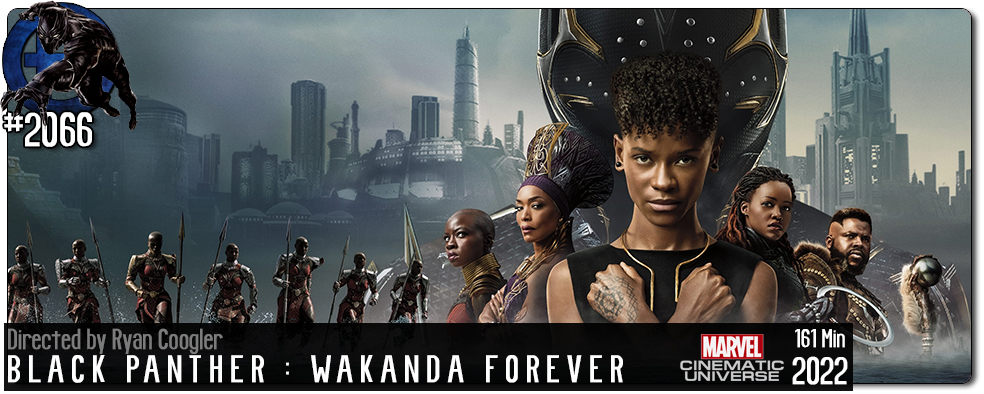Movie Review – Black Panther: Wakanda Forever
Principal Cast : Letitia Wright, Lupita Nyong’o, Danai Gurira, Winston Duke, Florence Kasumba, Dominique Thorne, Michaela Coel, Tenoch Huerta Mejia, Martin Freeman, Anglea Bassett, Julia Louis-Dreyfuss.
Synopsis: The people of Wakanda fight to protect their home from intervening world powers as they mourn the death of King T’Challa.
********
The world briefly paused with collective shock in 2020, following the surprise announcement of the passing of Chadwick Boseman, acclaimed actor and star of Marvel’s Best Picture-nominated Black Panther, the billion-dollar 2018 epic that would go on to become a cultural phenomenon and see the performer, who had appeared in Captain America: Civil War a few years prior, become an icon of the comic book film genre even in a posthumous way. Boseman, who kept his cancer diagnosis secret from all but a few close friends and family, worked through with his illness for years, until it finally claimed his life; according to interviews, he even kept his illness secret from MCU impresario Kevin Feige, which even I admit came as a complete surprise given the intricacy of which the studio approaches its projects.
Naturally, once the shock and grief subsided for the general public, discussion naturally turned to the role of T’Challa, the pivotal character played by Boseman across several films in the MCU, and how it would be handled in the wake of the actor’s passing. Director Ryan Coogler was faced with an unenviable challenge: keep the story of Wakanda and the Black Panther going without your titular star and main character, due to Marvel’s reluctance to re-cast the role with a new actor. With the film delayed by the Covid-19 pandemic and the pause button being pressed to retool the script, Black Panther’s eventual return to the big screen, Wakanda Forever, attempts to juggle a number of different elements; keeping the MCU thriving and expanding, offering closure for grieving Boseman fans of the franchise in a satisfying manner, and remaining an entertaining, engaging superhero movie for even casual fans to approach with enthusiasm. The film also had to satisfactorily answer the most acute question of all, though, in the revelation of the character who would assume the mantle of Black Panther.
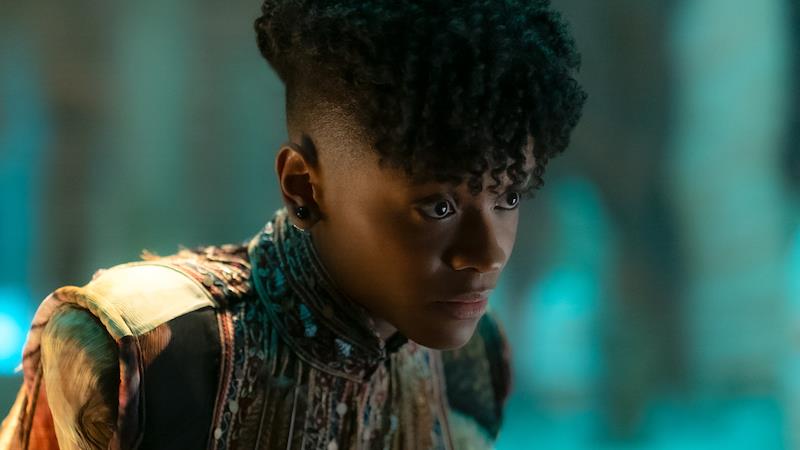
Following an attack by unknown forces on an undersea exploration vehicle searching for Vibranium, the country of Wakanda, led by Queen Ramonda (Angela Bassett) finds itself at the center of a global power-struggle for the valuable metal, a struggle which has drawn the attention of a mysterious undersea kingdom known as Talokan. The Talokan leader, a powerful humanoid named Namor (Tenoch Huerta Mejia), wants to lead a first strike on the surface world lest it come for the underwater Vibranium deposits, and kidnaps hugely intelligent US college student Riri Williams (Dominique Thorne) to prevent Wakanda from attacking. Namor pressures Princess Shuri (Letitia Wright) into using her influence against Ramonda, but a sudden attack on the Wakandan capital forces the young royal, mourning the death of her brother King T’Challa (Chadwick Boseman, depicted using archival footage from the previous film) a year earlier, to consider bringing the mantle of Black Panther back to protect her world. Shuri is aided by Okoye (Danai Gurira), leader of the Dora Milaje, and Nakia (Lupita Nyong’o), T’Challa’s former consort and Wakandan spy, as well as American intelligence agent Everett Ross (Martin Freeman).
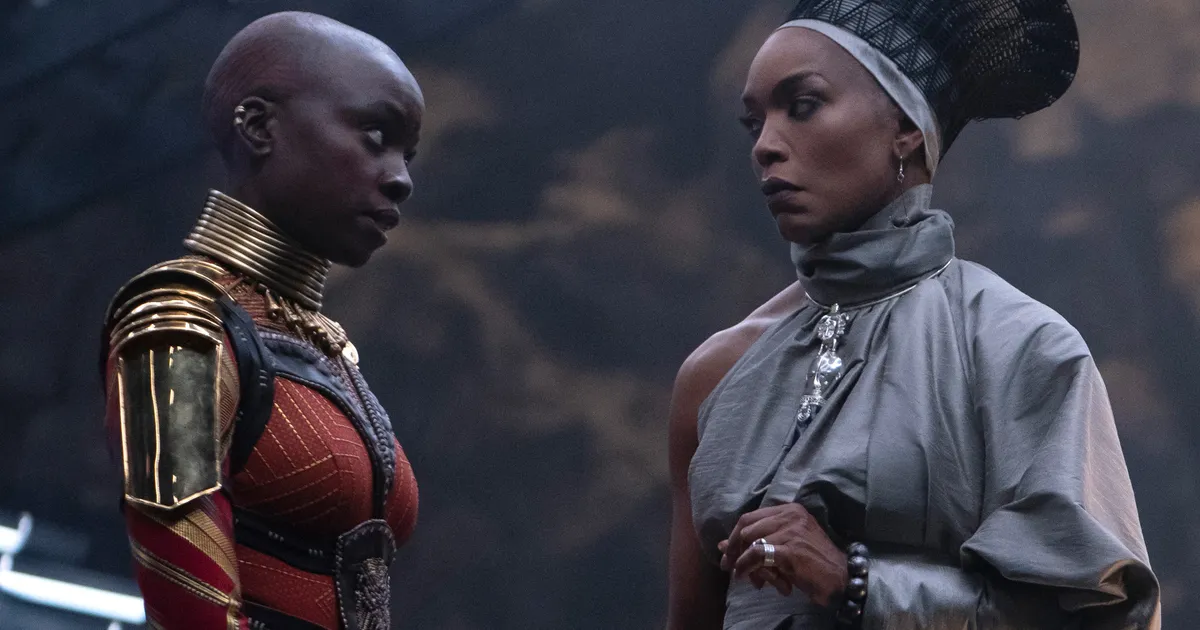
Clocking in at a bladder-testing two-and-a-half-hours-plus, Wakanda Forever is a film with more than a few issues. None of these issues will matter to die-hard Marvel fanatics, but casual fans may very well start to ponder what all the fuss is about. For a start, the film is overly long, and has a problem overcoming middle-act fatigue and pacing issues, most of which occur when the film spends any time with interloper character Riri Williams. Riri, who herself is set to star in her own Disney+ miniseries in 2023, as well as a bizarrely underwhelming Everett Ross subplot, feels like they both belong in a different movie, they’re so atonal and abruptly ( incongruously, perhaps?) interjected into the narrative here, without any real reason to be. Ryan Coogler’s film aches for the inclusion of the absent Boseman, whose presence (or lack thereof) is felt keenly in a pre-credits cold open before the ubiquitous Marvel vanity sequence plays out in a special tip-of-the-cowl to the deceased actor. Although the film plays on the real-life death of Boseman and amalgamates the grief of that loss within the narrative of the story proper to considerable success, aside from Angela Bassett’s ferocious turn as Ramonda there’s a distinct forlorn-ness to everyone else’s roles here, with Coogler trying to centralise Letitia Wright’s character of Shuri as the core emotional arc of the film being both Wakanda Forever’s greatest asset and chief weakness.
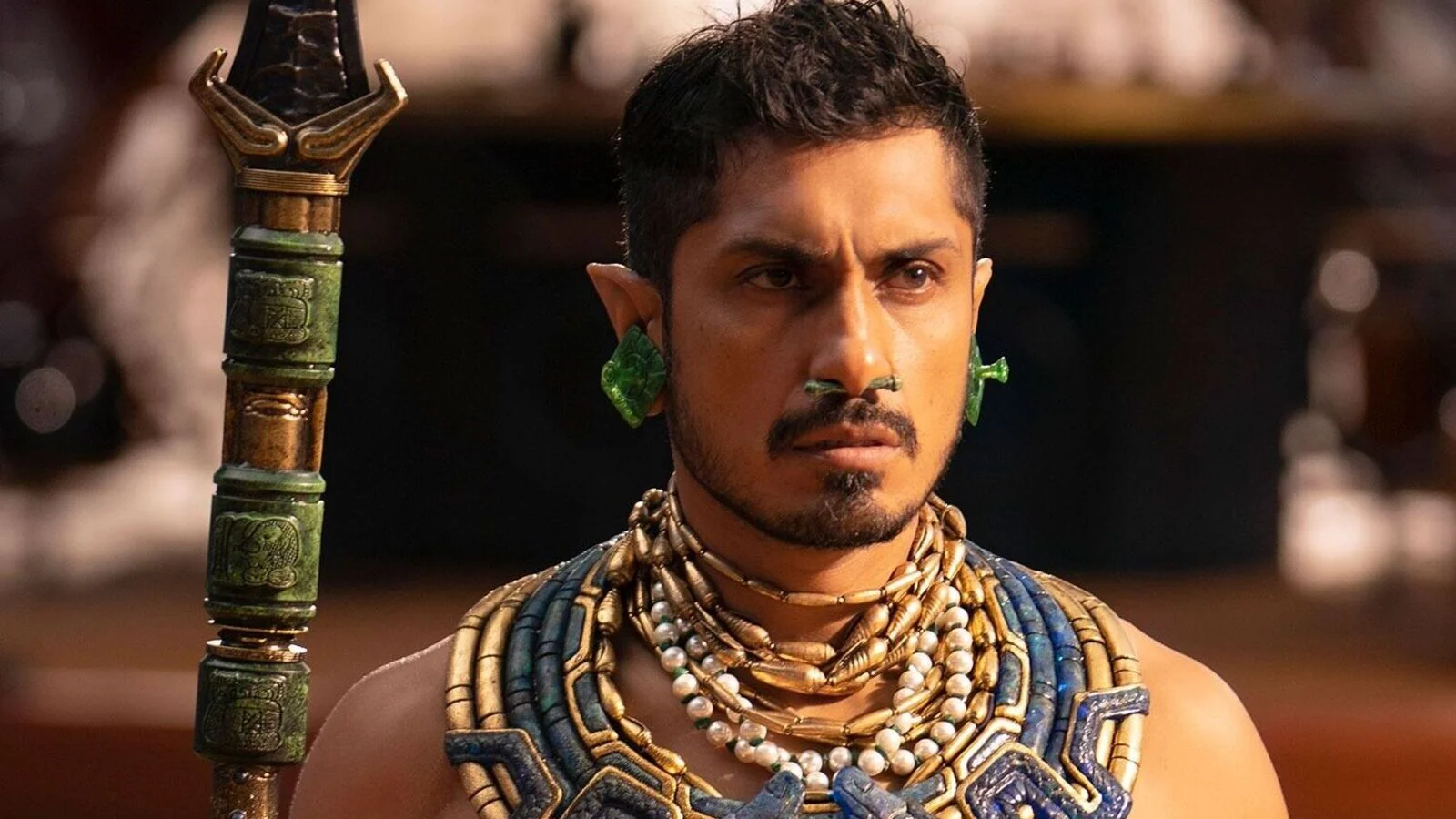
I hate to say it, but at best Shuri was only ever a secondary character, here thrust somewhat spuriously into the foreground to shoulder the film’s emotional arc, and although Letitia Wright does her absolute best, the lack of gravitas she is able to bring to the character threatens to underwhelm for the film’s entirety. It helps a little that Coogler surrounds the young actress with a stellar cast of sublime supporting talent – Bassett notwithstanding, Wakanda Forever once more focuses on fan-favourite Okoye, the hilariously masculine M’Baku (Winston Duke), and the delightful Michaela Coel to flesh out the wider Wakandan tableau, while Lupita Nyong’o’s late act arrival as Nakia gives the film’s finale added heft in the feminine department. The film is Wright’s to carry, however, and while the actress plays earnestly with the weight of the subject matter written for her neither she, nor Coogler for that matter, can muster a defining cathartic arc that works. Instead, the film’s secondary plot, involving the Mesopotamian-inspired Talokan and their leader, Namor, overtakes a lot of the film’s potboiler global-tensions world-building, with the famous winged-footed anti-hero’s introduction into the MCU one of the more inspired elements of the whole movie. Honestly, Tenoch Huerta Majia is a revelation as Namor, a character whose motivations are succinct and believable, if not always empathetic, and every time he appears on the screen the film really kicks into another gear.
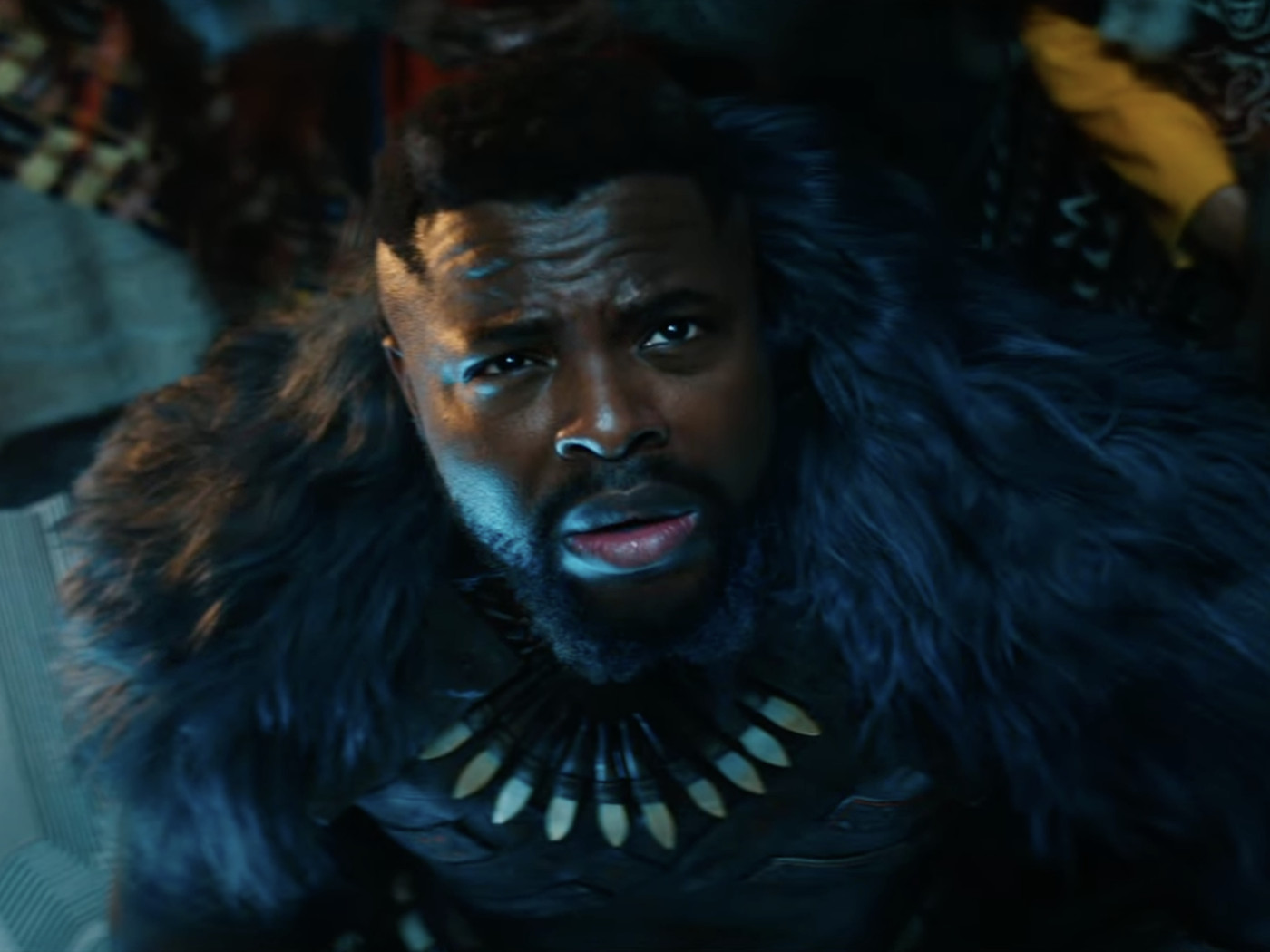
Unfortunately, Namor’s underwater world of Talokan feels like some weird offshoot of James Cameron’s Avatar; the rest of the inhabitants of this amazing undersea world are all blue-tinged uber-creatures with a very distinct Central American culture aesthetic, but you never really get the sense of wonder that comes with their discovery. The wider Talokan culture feels constructed solely to throw into conflict against Wakanda, and the backstory to this whole plot device kinda feels shoehorned into the film to service a larger MCU demand, rather than organically or intuitively. It’s this incongruous balancing act that Coogler uses to juxtapose the wider world conflicts of resources (in the modern age, that’s oil and gas) against competing powerful nations, quite the subtext to aim for despite flailing about for relevance amidst the superheroics at play.
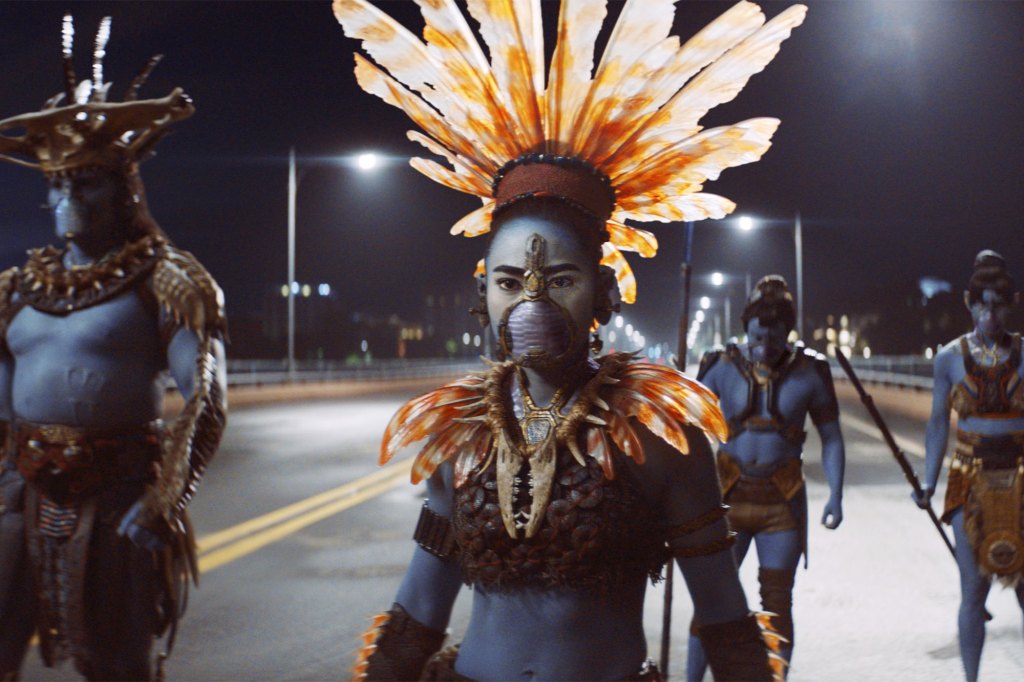
While it muddles the materialistic complexity of the Vibranium MacGuffin at the heart of the film, Wakanda Forever certainly pulls no punches with its rambunctious and plentiful action sequences. Admittedly, a lot of the CG-overkill tends to get a bit wearying after a while, and the sound mix is nothing short of deafening, but Coogler’s keen eye for frantic action and cool trailer-worthy moments make up for the parts of the film that drag. Although it never states as much specifically, Wakanda Forever also plays brilliantly into the powerhouse female roster the MCU has built up over the last few phases, with almost the entire protagonist roster being female role-models, and always kicking ass when required. It’s a story of grief and loss, and everyone tapping into their real-world sense of loss when having to evince emotion surrounding Boseman’s passing. It’s a story of strong female characters having to lead, learning to lead, learning to determine their own path to righteousness and understand what it means to lead, in spite of that grief. There’s a lyricism to much of Wakanda Forever’s sun-blasted visuals and murky, hyperreal underwater sequences, and coupled with the beauty of the film’s cinematography (kudos to Loki DP Autumn Arkapaw for her work here) the performances here are all technically first rate.
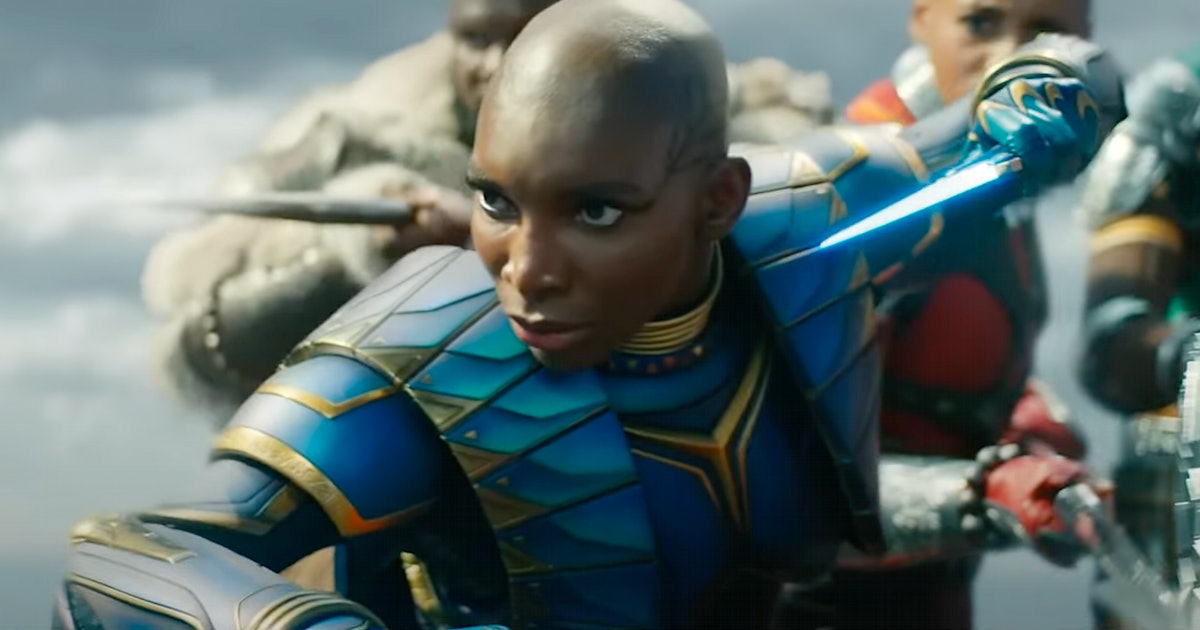
Wakanda Forever is perhaps the least overtly satisfying film to come from Marvel’s Phase Four, in that the mountain it had to climb to be successful is almost insurmountable even for one of Hollywood’s most touched-by-an-angel studios. That it was a film that had to contort to adjudicate itself within the confines of both self-reflective grief but wider fandom and community sadness at Boseman’s passing leaves the movie with a rather melancholy aftertaste – an adornment that is earned and yet never allows the film to truly breathe on its own. The shadow of loss looms over just about every inch of this thing, and depending on your attachment to the loss of Chadwick Boseman you may even shed a tear at some of the visual motifs within. Maybe Wakanda Forever is the film we needed to close this incredibly sad chapter in the life of the MCU, and I doubt anyone would suggest Feige and his creative teams haven’t earned at least one pass. Coogler bravely – nay, defiantly – exceeds many expectations and falls short in some others, and I would think a lack of re-watchability will make this one of the lesser MCU entries, despite introducing arguably one of comicdom’s most intriguing and polarising figures in Namor.
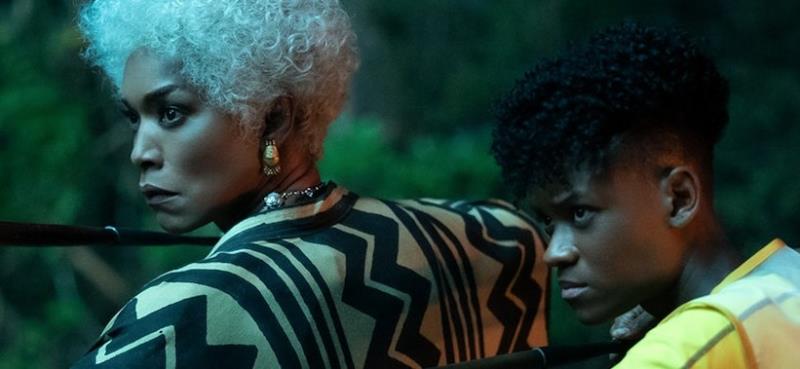
When you’re trying to recapture the magic of a film that would find itself in contention for Best Picture, it was always going to be a challenge to – through no fault of your own – have to do so without both your charismatic leading man or the character he played. After seeing Wakanda Forever I’m inclined to think that Feige and Coogler should have found another actor to play T’Challa, for the character is so indelible in the mythology of the wider Marvel Cinematic Universe, that his absence is felt all the more keenly. That said, Letitia Wright, Angela Bassett and Tenoch Huerta Mejia should be commended for solid performances in their respective roles, with Wright unfortunately having to bear the weight of considerable narrative heft without the ability to pull it off completely. I actively disliked a couple of the creative choices in this film (the inclusion of Riri Williams as a literal hostage of external forces throughout felt uncomfortably awful, and the sublot sequences involving Martin Freeman’s Agent Ross were spectacularly unfunny, despite one of them revealing a jaw-dropping piece of info for the wider MCU) and felt the weight of the Talokan vs Wakanda story was numbed by sheer length and confused ideologies. At least the fights and visual effects were solid for the most part; sadly, Wakanda Forever’s climactic comic-book fight sequence does lean into weaker CG than is typical for these kinds of films, but if I watched through squinted eyes it was all okay.

I make it sound like I hated this film from the start – I categorically did not – but I found a lot of the film’s weaknesses (God the film goes on and on and on at times) weren’t mitigated with enough strong points that engaged me as much as I’d have liked. But it’s hard to actively hate a film with this much goodwill and love soaked into it, no matter how ineffective I felt some of its broader choices were. Coogler aims high and stuffs so much in it’s like feasting blindfolded at a banquet; not everything tastes great but you’re happy just to be at the table eating. And I’d rather a director aim high and fall short than one who doesn’t even try, so criticising this film feels a little like smacking an infant for falling over and hurting themselves. Despite my misgivings about Wakanda Forever’s potential for re-watchability, I think future viewings will allow these sharp, pointed emotional wallops to dull enough to allow a more cerebral approach to appreciate the film’s structure and subtexts. At least I hope so. There’s plenty here to explore further, and more than a few carrots dangled on the end of a stick to tease the fandom, if only it wasn’t stuck scrabbling for the ghosts of the past far too often to look forward to the future.

